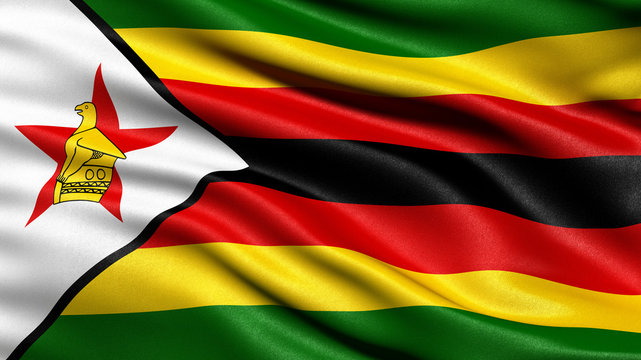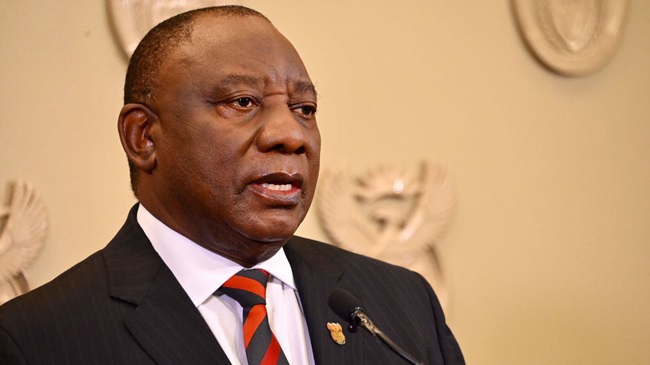Amidst rich culture and diversity, Africa has also faced its share of conflict. Yet, in the existence of this turmoil, a powerful force for peace has emerged – African women. According to UNWomen, “From the rubble, they rebuild, with singed scraps, they weave together the new fabric of a community, a country, and set the wounds of conflict on the long journey towards healing.” They are not simply bystanders in the struggle; they are architects of reconciliation, healers of communities, and unwavering advocates for lasting peace. This article spotlights the critical role women play in African conflict resolution, highlighting key figures, successful initiatives, the challenges they face, and the promising future of their involvement.
Champions for Change
Ellen Johnson Sirleaf (Liberia)
The first democratically elected female president in Africa, Sirleaf led Liberia through post-war reconstruction and reconciliation after a brutal civil war. Her leadership earned her a Nobel Peace Prize in 2011, becoming an inspiration for women across the continent.
Leymah Gbowee (Liberia)
Alongside Sirleaf, Gbowee, a social worker and activist, played a pivotal role in ending the Liberian war. Her grassroots movement, Women of Liberia Mass Action Group, used nonviolent protests and sex strikes to pressure warring factions to negotiate peace. She was a co-recipient of the 2011 Nobel Peace Prize.
Catherine Samba-Panza (Central African Republic)
As the first female president of the Central African Republic, Samba-Panza became a beacon of hope during a period of intense sectarian violence. She fostered dialogue and reconciliation efforts, advocating for the inclusion of women in peace talks.
Graça Machel (Mozambique)
Graça Machel, an international advocate for women’s and children’s rights, has significantly contributed to peace efforts across Africa. As the widow of two African presidents, Samora Machel of Mozambique and Nelson Mandela of South Africa, her influence extends beyond national borders. Machel has worked tirelessly to address the impacts of conflict on women and children and to integrate gender perspectives into peace processes. She co-founded The Elders, a group of global leaders working for peace and human rights, where she continues to champion women’s involvement in conflict resolution.
Damilola Odufuwa and Odunayo Eweniyi (Nigeria)
Odufuwa and Eweniyi joined forces in 2020 to create the Feminist Coalition, which focuses on women’s rights and safety, economic empowerment, and political participation of women in Nigeria. For its first project, the organisation supported the #EndSARS protests that swept Nigeria in 2020 and organized a food drive for low-income women and their families. “A feminist leader is empathetic and understands the importance of intersectionality,” adds Odufuwa.
Meaza Ashenafi (Ethiopia)
Meaza Ashenafi is the first female Chief Justice of Ethiopia and a trailblazer in many ways, mainly for legal advocacy through her work with Ethiopian Women’s Lawyers Association (EWLA), an organization she co-founded with like-minded young female lawyers. After finishing law school from Addis Ababa University, of which she was the only female graduate from her class year, she served as a criminal court judge, which allowed her to see first-hand how the laws were discriminating against women.
These are just a few of the many incredible women who have shaped the course of peace in Africa. Their stories showcase the diverse ways women are leading peace initiatives.
Successful Initiatives
The Women, Peace, and Security (WPS) agenda, a UN Security Council Resolution, promotes women’s participation in peace processes. African countries like Kenya, Nigeria, and South Sudan have adopted action plans to increase women’s representation in peace negotiations, protect them from gender-based violence, and incorporate their needs into post-conflict reconstruction. The African Women Leaders Network (AWLN) is a platform for women leaders to share experiences, mentor each other, and collaborate on peace and development initiatives. FemWise-Africa, an African Union initiative, strengthens women’s role in conflict prevention and mediation by providing training, capacity building, and networking opportunities for women mediators. Both initiatives aim to ensure women’s voices are heard in decision-making forums at local, national, and regional levels.
Despite progress, women in Africa face numerous challenges in leading peacebuilding initiatives. These include cultural and societal barriers, security risks, limited access to resources, and political exclusion. Traditional gender roles and patriarchal norms often limit women’s participation in peace processes, as they are often expected to focus on domestic responsibilities. Ensuring the security of women peacebuilders is crucial for their continued participation and effectiveness. Limited funding and resources also hamper their ability to implement programs and conduct outreach. Increasing investment in women-led peacebuilding initiatives is essential to amplify their impact. Lastly, women are often underrepresented in formal peace negotiations and political processes, highlighting the need for gender parity in political and peacebuilding institutions to achieve sustainable peace.
Call to Action
The future of women in African conflict resolution holds promising prospects, driven by a combination of policy advancements, grassroots mobilization, and increasing recognition of women’s contributions to peacebuilding.
Policy Advancements
The implementation of policies such as the WPS agenda and national action plans on women’s participation in peace processes is crucial. Continued advocacy for the adoption and enforcement of these policies will help create an enabling environment for women peacebuilders. Furthermore, integrating gender perspectives into all aspects of peacebuilding, from conflict prevention to post-conflict reconstruction, is essential for achieving comprehensive and lasting peace.
Grassroots Mobilization
Grassroots movements led by women have demonstrated significant success in advancing peace and reconciliation. Encouraging and supporting these movements through capacity building, funding, and networking opportunities will enhance their impact. Empowering women at the community level to take active roles in peacebuilding can lead to more inclusive and effective solutions.
READ ALSO: The Rise of African Women in the Global Financial Landscape
Education and Empowerment
Investing in the education and empowerment of women and girls is fundamental for sustaining peace efforts. Providing access to education, vocational training, and leadership development programs equips women with the skills and confidence to participate in peace processes. Promoting gender equality in education and economic opportunities will also contribute to broader societal change.
International Support and Collaboration
International organizations and partners play a crucial role in supporting women’s peacebuilding efforts in Africa. Continued collaboration with global institutions, such as the United Nations, the African Union, and international NGOs, can provide technical assistance, funding, and advocacy support. Building strong partnerships and leveraging international networks will help amplify the voices and impact of African women peacebuilders.
Women are indispensable to the peacebuilding process in Africa. Their contributions, whether through high-level leadership, grassroots activism, or innovative initiatives, have proven vital in resolving conflicts and fostering sustainable peace. Despite facing significant challenges, African women continue to demonstrate resilience and determination in their quest for peace. By addressing the barriers they face and supporting their efforts, the international community can help ensure that women’s leadership in peacebuilding is recognized, valued, and sustained. The future of conflict resolution in Africa undoubtedly lies in the hands of its women leaders.


